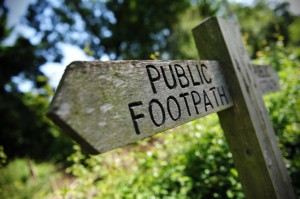 Times they are a changing, and never has that been truer than in the area of negative feedback and guest complaints. Where people would in times gone by leave their feedback in a comment book placed within your holiday home and raise any issues over the phone during their stay, these comments and issues are now often left online once they get home for the world to see.
Times they are a changing, and never has that been truer than in the area of negative feedback and guest complaints. Where people would in times gone by leave their feedback in a comment book placed within your holiday home and raise any issues over the phone during their stay, these comments and issues are now often left online once they get home for the world to see.
So what is the best way to address negative feedback or guest complaints made after they have left your holiday home, and the option of rectifying any issue is no longer on the table?
The TripAdvisor conundrum
Love it or loath it, TripAdvisor plays a large role in effecting the buying decisions of potential guests. Therefore any negative reviews need to be dealt with effectively, efficiently and also without emotion.
You should have a strategy and approach to Tripadvisor which should include the following:
- Having someone responsible for reviewing and responding to your reviews, both positive and negative.
- Have a time frame for responding to any ongoing reviews.
- Create a review process for any response to a negative review which brings in more than one person.
The final point is a key one here; when writing online it can be very difficult to denote tone, which means that in the majority of cases the person reading the response you’ve written (whether that’s the person that’s left the complaint or a potential guest) will apply their own perceived tone to it.
Ensuring that more than one person has read the response, and that it isn’t posted in haste, will help to ensure you’ve struck the correct chord.
Is it all lost or can the situation be resolved?
If a guest has left a negative review then it can be understandably difficult to not take it personally; you’ll spend a lot of time, effort and money in making your cottage a great place for guests to stay so any complaint can seem as somewhat of an attack.
Because of that the default position may be to revert to defense. However, take some time to think how best to resolve the issue rather than pointing elements out to the contrary of what they’ve said.
Entering into conversation away from the public eye is a positive way of moving toward a resolution and away from an unseemly TripAdvisor spat, which can quickly and frequently, go viral.
If points they’ve made do need clarification make sure they’re made in a factual and non-emotive way.
What if they’re not made on Tripadvisor?
The question here is how to find them! Although TripAdvisor is a massive part of holiday home and tourism life, not all comments and reviews will be made through the platform.
You should regularly monitor your brand online through Google, Twitter and Facebook.
How to find recent mentions of your cottage on Google
When it comes to Google, try putting in the name of your cottage, or your website url (try both). If you select ‘Tools’ which is just underneath the search box on Google and alter the ‘Any Time’ drop down to ‘Past week’ you will only be seeing new information added to Google in the last seven days. This can be a great way of keeping on top of the vast search engine.
How to find mentions of your cottage on Twitter
Are you already using the third party application Hootsuite for Twitter? If not then here is a great reason to do so. Hootsuite provides quick and easy access to recent mentions of your holiday cottage from the millions of tweets made every hour.
You can do this in seconds by:
- adding a tab / stream into the platform; and
- setting the search to the name of your cottage.
This will let you see mentions of your cottage when they’ve not included your Twitter handle in their tweet. (These will appear automatically in your @mentions tab on Twitter).
For more information on adding columns to Hootsuite, take a look at these instructions:
How to find mentions of your cottage on Facebook
Last but not least; you can find mentions of your cottage on Facebook by using the simple search tool available on all profiles.
And once you’ve located the comments?
Once you have found any feedback and comments from your guests ensure you always respond. Do so in the same effective, efficient and non-emotive way as you should on TripAdvisor.
Boshers offer specialist holiday home insurance to owners across the UK. For information on how specialist insurance can help protect your holiday home business, call us on 01237 429444



 It’s the small touches that make a big difference when it comes to high quality accommodation. Guests notice the small touches; the fresh flowers, the neatly made bed, the
It’s the small touches that make a big difference when it comes to high quality accommodation. Guests notice the small touches; the fresh flowers, the neatly made bed, the 


 Whilst traditionally a time spent with family in the confides of our own home, more and more of us are now packing our bags and heading for a holiday cottage to celebrate Christmas.
Whilst traditionally a time spent with family in the confides of our own home, more and more of us are now packing our bags and heading for a holiday cottage to celebrate Christmas.



 A dog has long been regarded as a man’s best friend and for a nation of pet lovers it doesn’t stop there; from your pampered pooch to the fastidious feline, an estimated one in three UK households now has a pet to call their own.
A dog has long been regarded as a man’s best friend and for a nation of pet lovers it doesn’t stop there; from your pampered pooch to the fastidious feline, an estimated one in three UK households now has a pet to call their own.
 Fresh air, stunning views, great company and the sun on your back, what could be better than enjoying a walk in the British countryside?
Fresh air, stunning views, great company and the sun on your back, what could be better than enjoying a walk in the British countryside?
 With more than 7,000 miles between Britain and Hawaii it may seem the two are quite literally poles apart, if not only in terms of geography but also meteorologically given the potential inclemency of a British summer.
With more than 7,000 miles between Britain and Hawaii it may seem the two are quite literally poles apart, if not only in terms of geography but also meteorologically given the potential inclemency of a British summer.
 Catering for the growing British cycling market
Catering for the growing British cycling market
